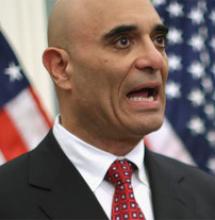To help prevent and combat money laundering, tax fraud and other financial crimes, a recent bipartisan law requires many companies and small businesses to report beneficial ownership information (BOI) to the U.S. Treasury’s Financial Crimes Enforcement Network (FinCEN).
Maryland Small Business Owner Highlight

Entrepreneur Clifton Broumand has an advanced degree in trial and error, and if you ask him he’ll tell you his studies were not cheap.
“I had a very expensive education – instead of getting an MBA at a university, I got a Ph.D. in making mistakes and learning from them,” said Clifton.
Maryland Events
Since its inception more than 70 years ago, the U.S. Small Business Administration (SBA) has helped millions of small businesses across the country access the capital and resources needed to thrive and grow.
Maryland Policy
Today, Small Business Majority's Public Policy Director Awesta Sarkash testified before the Maryland House of Delegates Economic Matters Committee in support of HB 574, which would enact critical protections for small business borrowers in Maryland that are falling prey to predatory lending practices.
On February 15, Small Business Majority's Public Policy Director Awesta Sarkash testified before the Maryland Senate Finance Committee on SB 0496, legislation that would enact critical protections for small business borrowers in Maryland that are falling prey to predatory lending practices.
Today, Awesta Sarkash, Government Affairs Director, testified in front of the Maryland Senate Finance Committee in favor of Senate Bill 825, the Consumer Credit- Commercial Financing Transactions.
The most surprising development in Maryland this month wasn’t a snowstorm but the fact that the General Assembly and Gov. Larry Hoganput politics aside to pass a lawthat will rescue the state’s entrepreneurs and small business employees from skyrocketing health care costs.
Maryland lawmakers just approved a bill that will curb the cost of health insurance premiums for 150,000 residents through a $380 million reinsurance program. That's money that can be used by insurers to pay for some of the costliest claims made by customers who purchased insurance through Maryland’s health insurance marketplace. States like Maryland are looking at these programs because they can help stabilize premiums in the individual marketplace by helping to compensate insurers for their most expensive customers.

